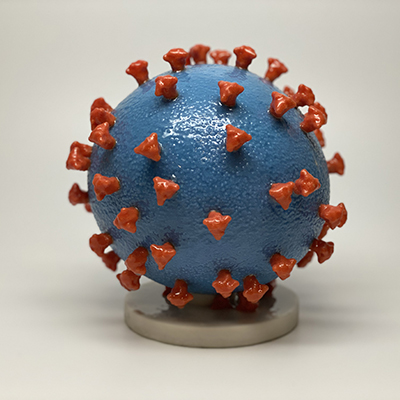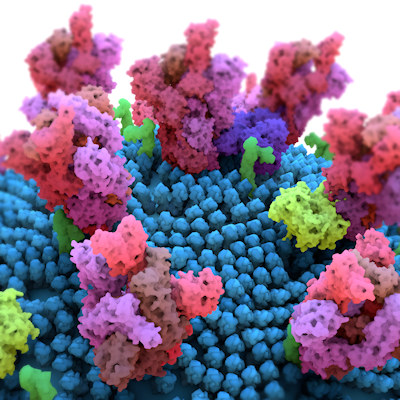February 23, 2021 -- The U.S. Food and Drug Administration (FDA) has released new guidance for developers of products for COVID-19 vaccines, therapies, and tests with a particular emphasis on addressing coronavirus variants.
Among other documents, the agency has issued a policy for evaluating the effect of viral mutations, which explains the effect of variants on product performance, due to a number of factors including the type of variant and design. The guidance document provides instruction for test developers on how to design products with variants in mind and to monitor performance over time as new mutations of the virus emerge.
The FDA also issued an updated version of its previously released guidance document. This document provides advice on modifying vaccines to ensure effectiveness against variants through clinical immunogenicity studies. It's possible that in the future, clinical studies may not need to be submitted to support use of modified versions of authorized vaccines, according to the agency.
In the meantime, those vaccine developers that have already received EUAs are seeking to amend products to remain protective against currently circulating strains. The agency noted that if there is an emergence of a strain that is fully resistant to antibody responses elicited by the current generation of COVID-19 vaccines, modified or new vaccines may be necessary, but the FDA stated that this is a topic for future discussion.
In the guidance, manufacturers are also encouraged to study the modified vaccine in both nonvaccinated individuals and in individuals previously vaccinated with the authorized vaccine. The guidance also outlines the agency's recommendations of safety to support an EUA of a modified vaccine.
Other guidance addresses therapeutics for the coronavirus, such as development of monoclonal antibody products targeting SARS-CoV-2, including addressing the effect of emerging variants during the COVID-19 public health emergency. The agency is aware that some previously authorized monoclonal antibodies are less effective against emerging SARS-CoV-2 variants. This new guidance provides recommendations on efficient approaches to the generation of preclinical, clinical, chemistry, manufacturing, and control data that could potentially support an EUA for monoclonal antibody products that may be effective against emerging variants.
Copyright © 2021 scienceboard.net










